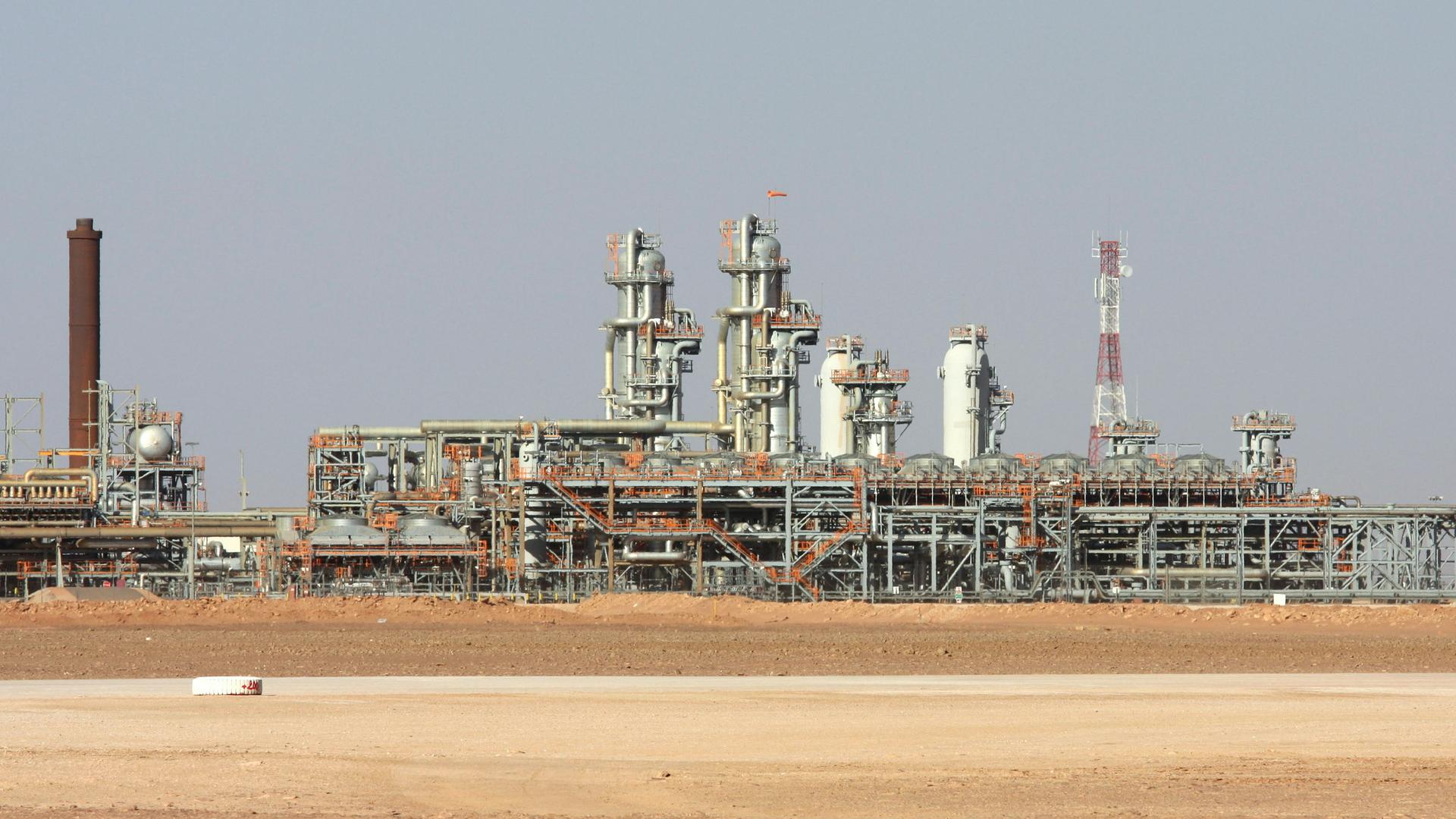Europe has struck a deal to buy natural gas from Israel to make up for lost Russian imports.
Madrid, no doubt, is happy about the decision, because Spain’s biggest gas provider, Algeria, is threatening to close the taps, or raise prices.
So far, Algeria hasn’t followed through on its threats to cut supplies or charge more. But last week, Algeria severed trade and diplomatic ties with Spain, and has now threatened to cut off coveted gas sales.
Related: ‘Fire flocks’ of sheep and goats get deployed to help battle forest fires in Spain
This comes after Spain upended a long-standing agreement with Algeria regarding its former colony, Western Sahara. Spain backed Morocco’s claim that the region should have some limited autonomy, while remaining under Moroccan rule. (About 80% of the country is controlled by Morocco, and the other 20% by the independence-seeking Polisario Front.)
The dispute has brought up conflicts with Algeria around energy prices, the border and migration.
Years of fighting
The conflicts are rooted in one of those seemingly intractable geopolitical stalemates. Since the Spanish left Western Sahara in 1975, Morocco and Algeria have been at odds, sometimes violently, over the region’s future.
After years of desert fighting between Morocco and Algeria, and Morocco and the Polisario Front, a ceasefire went into effect in 1991. But Morocco still wants the vast region to its south. It says it was once part of a greater Morocco. And Algeria backs the Polisario Front in Western Sahara.
The United Nations, meanwhile, has long said the people of Western Sahara, the Saharawi, should decide their own fate. For nearly half a century, no one has quite known what to do next. So, most countries have essentially done nothing. Until recently.
This past spring, Spain’s Prime Minister Pedro Sanchez told Parliament that he was backing Morocco’s plan for autonomy in Western Sahara, under Moroccan rule. In return, Sanchez said, “we’ve protected our territorial claims.” That is, Spanish sovereignty over Ceuta and Melilla.
Migration issues
Ceuta and Melilla are Spanish enclaves in North Africa, surrounded by Morocco — vestiges from the colonial era —and Morocco lays claim to them. They’re also significant because they are among the places from where migrants are constantly trying to cross into Europe.
Professor Rafael Grasa at Barcelona’s Autonomous University said that Spain may have struck this sudden deal to solve that border problem.
“Spain could no longer accept the avalanches of migrants encouraged by Morocco. Or the shocking news reports of people being hurt.”
“Spain could no longer accept the avalanches of migrants encouraged by Morocco,” he said. “Or the shocking news reports of people being hurt.”
Last March, some 1,300 migrants, mostly from sub-Saharan countries, rushed the fences in Ceuta. Hundreds made it over. But many got cut on the barbed-wire or hurt in tussles with police.
“Spain believed this was never going to end, which appears to be why it decided to negotiate,” Grasa said.
Related: Barcelona is one of Europe’s loudest cities. It’s trying to turn down the volume.
By backing Morocco’s plans for Western Sahara, Spain may have gained some stability at its North African borders. But the deal comes at the expense of its relationship with Algeria, according to Dr. Hisham Hellyer at Cambridge University’s Center for Islamic Studies.
He said that using migrants as leverage to gain concessions from Europe isn’t new.
“So, the Turks have done that and other states in North Africa as well,” he said. “And of course, when it came to the Turks, they got a huge payoff from the EU.”
The European Union has paid Turkey hundreds of millions of dollars to ensure that huge numbers of, particularly Syrian, refugees are taken care of in Turkey.
“So that Europeans wouldn’t have to deal with them,” Hellyer said.
“Migrants to Spain come through Morocco, Libya and Algeria,” Grasa said.
In fact, on June 8, on the day that Algeria cut diplomatic ties with Spain, 113 African refugees reached the Spanish island of Mallorca. They’d set sail from Algeria.
A ‘diplomatic blunder’?
Grasa calls the Moroccan deal a diplomatic blunder. Especially when you factor in something in short supply these days: natural gas.
As Europe weans itself off Russian gas, Spain’s buying a lot more gas from the US. But it’s expensive, and fuel prices of all sorts have shot up there.
At a Barcelona gas station, 32-year-old delivery driver Alex Manuel pumps about $55 of gasoline into his truck. It’s just a third of a tank. But he’s short on cash.
“When gas prices go up, so does the price of food, transportation, everything,” he said. “The only thing that hasn’t gone up is my salary.”
But in diplomacy there’s always a Plan B — and C — Hellyer said. And the public may not know what’s going on behind closed doors.
“I would suspect very strongly that the Spaniards wouldn’t have taken this step without being very, sort of, open-eyed about what sort of risks and what sort of benefits [there are],” he said.
Hellyer also points out that Spain isn’t alone in backing Morroco’s autonomy plan for Western Sahara. France, Germany, and the Netherlands have given it the nod, as has the US.
